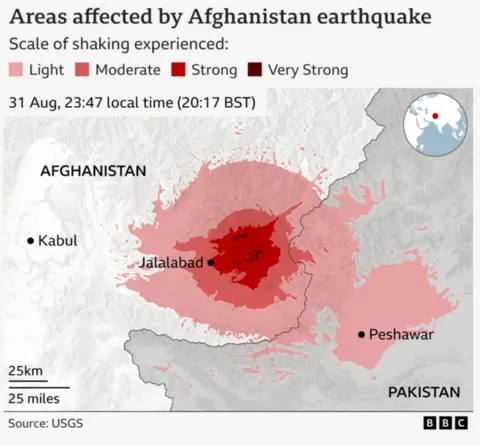Eighty years have passed since the liberation of the Bergen-Belsen concentration camp, yet the memories of horror remain vivid for survivors and families who gathered to commemorate the event. In April 1945, British and Canadian troops discovered the ghastly conditions at the camp, finding approximately 13,000 unburied corpses and over 60,000 frail survivors struggling amid death and despair.
On Sunday, ceremonies were attended by over a thousand individuals, including survivors and their families, who listened to harrowing testimonials about life in the camp. One poignant voice was that of 94-year-old Mala Tribich, who recalled the scene of "skeletons" everywhere, highlighting the inhumane brutality of the environment. Another survivor, Esther Alice, shared the haunting experience of holding her dying mother in hut 221 at merely 11 years old.
Despite the sun shining down during the event, an overwhelming chill enveloped the gathering as speakers reflected upon the atrocities committed within the camp’s walls. British soldier Michael Bentine famously described Bergen-Belsen as "the ultimate blasphemy" following his experiences there. Influential broadcaster Richard Dimbleby was one of the first to report from the camp after liberation, describing it as the "most horrible" day of his life, a sentiment echoed by numerous others who witnessed the camps firsthand.
Bergen-Belsen's infamy was partly due to its intact evidence of the horrors, a stark contrast to other camps like Auschwitz and Treblinka, which had been destroyed or emptied to conceal Nazi crimes. Inside Bergen-Belsen, the remnants of past lives remained, bearing witness to the extreme overcrowding that resulted in widespread disease and death—averaging about 500 fatalities per day in the camp's final weeks.
Notably, among those who died during this final stretch were notable figures like Anne Frank and her sister Margot. The inability of surviving prisoners to handle the nutritious food they received after liberation contributed to further deaths.
The anniversary event saw attendees lay wreaths in memory of the victims, joined by dignitaries including Deputy Prime Minister Angela Rayner and Chief Rabbi Sir Ephraim Mirvis. As veterans from the Jewish Military Association participated, a sense of reflection permeated the lush grounds of Lower Saxony, where the camp once stood.
Today, the site bears few physical traces of its dreadful past, mainly consisting of a visitor center and memorial stones marking the resting place of countless victims. The inscription on one memorial captures the overwhelming tragedy: "Hier ruhen 5,000 toten - here rest 5,000 dead."
On this solemn anniversary, the memories and tales of those who suffered at Bergen-Belsen continue to echo, reminding future generations of the importance of remembering and acknowledging the inhumane acts of the past.





















